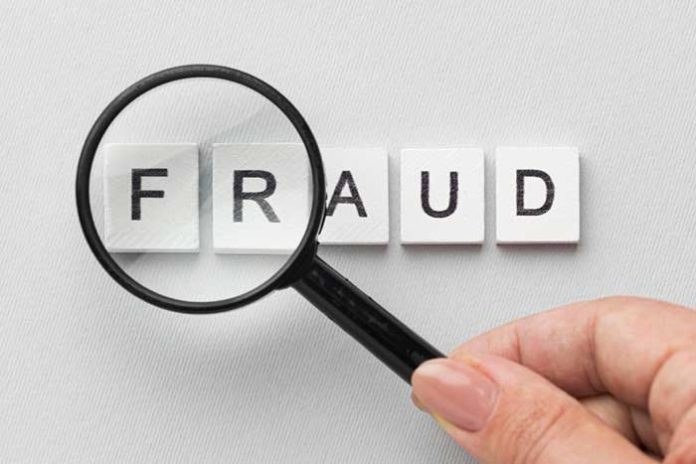In today’s world of online transactions, protecting business connections against fraudulent conduct has gained importance. Business verification technologies are strengthening the foundations of trust and honesty in the online world. In this piece, we’ll look at how different verification systems can help you avoid fraud and ensure secure online trade.
Safeguarding Business Integrity: The Crucial Role of Verification Technology in Fraud Prevention
1. The Importance of Business Verification

The importance of robust business verification is critical in today’s digital world. It acts as the fundamental that supports secure transactions and reputable commercial relationships. A thorough business verification procedure reduces the possibility of fraudulent activity. It acts as the fundamental that supports secure transactions and reputable commercial relationships. A thorough business verification procedure reduces the possibility of fraudulent activity. It guarantees the authenticity of the business and its transactions.
Beyond mere compliance, verification builds a reputation for reliability, instilling confidence among customers, partners, and stakeholders. Organizations that do not use legitimate authentication are at risk of their identities being stolen, fraudulent transactions made, and their brand harmed.
The process of verification helps to create a transparent and responsible corporate environment in addition to establishing the legality of companies. It helps deter criminals by indicating that fraudulent activity would be faced with strict retaliation.
2. Traditional Know Your Customer (KYC) Methods
For many years, the foundation of identity verification has been traditional KYC techniques. They involve gathering basic data and obtaining supporting evidence. Their flaws show when they face sophisticated cyberattacks. Fraudsters exploit gaps in static data, organizations need to go beyond traditional KYC. Modern KYC involves the use of active verification features. They use fingerprint verification and real-time data checks to boost their defenses against identity theft and other fraudulent activities.
Organizations are expanding the reach of KYC to incorporate know-your-business (KYB) procedures, per AU10TIX. KYB includes not only validating the identity of corporate firms, but also analyzing their ownership, organization, and financial relationships. This proactive strategy enables a more thorough awareness of the parties engaged in transactions, reducing the risk of B2B fraud.
Modern KYB solutions leverage advanced technologies, including artificial intelligence and machine learning, to analyze vast datasets and identify potential risks associated with business entities. According to Thomson Reuters, over fifty percent of corporations want to include AI or ML in their KYB due diligence operations soon.
Businesses that use KYB procedures increase their defenses against criminal deception while improving due diligence in the context of global commercial transactions. The synergy between KYC and KYB creates a robust framework that meets regulatory requirements while fostering a secure and trustworthy business environment.
3. Biometric Authentication Solutions

Biometric authentication stands at the forefront of cutting-edge business verification technologies, offering a unique and secure way to confirm identities. Fingerprint recognition, face scans, and iris patterns give unique identifiers, lowering the danger of illegal access or fraudulent transactions.
The inherent uniqueness of biometric data enhances security measures, making it exceedingly difficult for malicious actors to mimic or manipulate it. Aside from its safety advantages, biometric identification provides a streamlined and user-friendly experience, removing the need for conventional passwords or PINs.
By 2023, Statista predicts that over 48 percent of North American and European companies will be using biometric identification systems. Businesses that adopt biometric solutions improve security protocols and customer satisfaction, which improves security and customer experience.
4. Blockchain’s Immutable Ledger
Blockchain technology, with its decentralized ledger, is a powerful partner in combating fraud. A transaction cannot be changed or removed after it has been recorded through this technique. This feature becomes essential in business verification since it provides an error-free and visible transaction record.
Businesses use blockchain to boost trust by allowing stakeholders to verify the legitimacy of transactions. Blockchain technology has a decentralized nature. Therefore, there is no need for a central authority. It reduces the risk of theft, manipulation, or unauthorized access. Additionally, blockchain systems’ smart contracts automate verification processes. It boosts efficiency while maintaining the highest levels of privacy.
Also Read: Famous Hackers Hired by FBI
5. Artificial Intelligence and Machine Learning

Artificial intelligence and machine learning in corporate verification procedures signal an unprecedented shift in preventing fraud. These technologies enable systems to learn and adapt, continually analyzing patterns and anomalies to detect potentially fraudulent activities in real time. AI and ML utilize predictive analytics to help organizations remain ahead of scammers by detecting suspicious activity before it can harm them.
AI-powered verification methods not only improve fraud detection accuracy but also simplify operations by lowering manual work and accelerating verification. As enterprises embrace the possibilities of AI and ML, their defenses against new fraud methods improve, resulting in a secure digital economy.
6. Multi-Factor Authentication (MFA)
Multi-factor authentication (MFA) adds a layer of security by requiring users to submit various forms of identity. This strategy considerably decreases the possibility of illegal access. Even if one element is compromised, multiple authentication steps can act as preventative measures.
TechTarget states that typical MFA methods comprise knowledge (password), possession (mobile device), and biometrics, enhancing authentication security measures. By combining these factors, businesses create a robust authentication framework that enhances security without sacrificing user convenience.
MFA is a versatile tool applicable across various industries, from financial services to healthcare, providing a versatile solution to combat a range of frauds.
7. Internet of Things (IoT) in Verification
The Internet of Things (IoT) has expanded the horizons of business verification by incorporating data from interconnected devices. Businesses can leverage the wealth of information generated by IoT devices to validate transactions and ensure the legitimacy of interactions.
For instance, in supply chain administration, IoT sensors may follow the movement of items, allowing for real-time certification of their credibility.
IoT integration in verification processes improves accuracy while allowing organizations to have a more thorough picture of the contextual aspects influencing transactions. This contextual intelligence adds an extra layer of security, making it more challenging for fraudsters to exploit vulnerabilities in isolation.
8. Compliance Technology and Global Standards

Navigating the complex landscape of global compliance standards is essential for businesses engaged in international transactions. Technology for compliance is essential to maintaining compliance with regulations in a variety of countries.
Identification and transaction verification are streamlined by automated systems driven by compliance technology, which also ensures local and worldwide legal compliance. Global standards such as AML and CTF regulations, which forbid money laundering and sponsorship of terrorism, necessitate proactive compliance.
Businesses monitor and examine massive databases using compliance tools, swiftly identifying and notifying any questionable conduct. Businesses may avoid fraud and promote a culture of ethical conduct and legal transactions in the global economy by adhering to international norms.
Conclusion
To summarize, the implementation of different techniques for verification is an important move to make the digital business environment much safer. By employing biometric authentication, AI-driven fraud detection, and compliance solutions, businesses are strengthening their security, and enhancing the dependability of global transactions.
This strategy blends classic methodologies with cutting-edge technologies. It ensures compliance with regulations, minimizes pitfalls, and improves user experience. Verification technologies must work together to create a safer future for digital commerce.
Also Read: Data Privacy Concerns in Connected Cars




